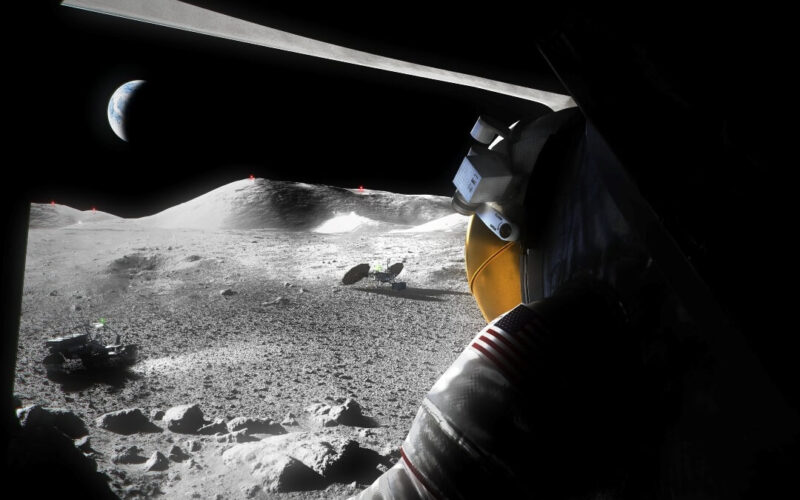NASA is calling on commercial companies for help with developing another astronaut moon lander, to compete with the SpaceX lander.
Under the Artemis program, NASA intends to visit unexplored regions of the moon and land humans on the moon for the first time in half a century. The space agency also wants to land the first woman and first person of color on the moon during the missions.
NASA said on March 23, 2022 that it had decided to pursue two parallel paths for lunar lander development. One comprises additional work under the contract with SpaceX, with NASA asking SpaceX to transform the company’s proposed human landing system into a spacecraft that meets its requirements for recurring services for a second demonstration mission.
The other path is open to all US companies to provide a new landing demonstration mission. The lander will need to be capable of ferrying astronauts between lunar orbit and the lunar surface for missions beyond Artemis III.
“Under Artemis, NASA will carry out a series of groundbreaking missions on and around the Moon to prepare for the next giant leap for humanity: a crewed mission to Mars,” said NASA Administrator Bill Nelson. “Competition is critical to our success on the lunar surface and beyond, ensuring we have the capability to carry out a cadence of missions over the next decade.
NASA said it will issue a draft solicitation in the coming weeks to set out its requirements. Having two landers will also provide redundancy to ensure its ability to transport astronauts to the surface of the moon.
Lisa Watson-Morgan, program manager for the Human Landing System Program, said NASA wanted to ensure lander capability by 2026 or 2027.
“We expect to have two companies safely carry astronauts in their landers to the surface of the Moon under NASA’s guidance before we ask for services, which could result in multiple experienced providers in the market,” Watson-Morgan commented.

